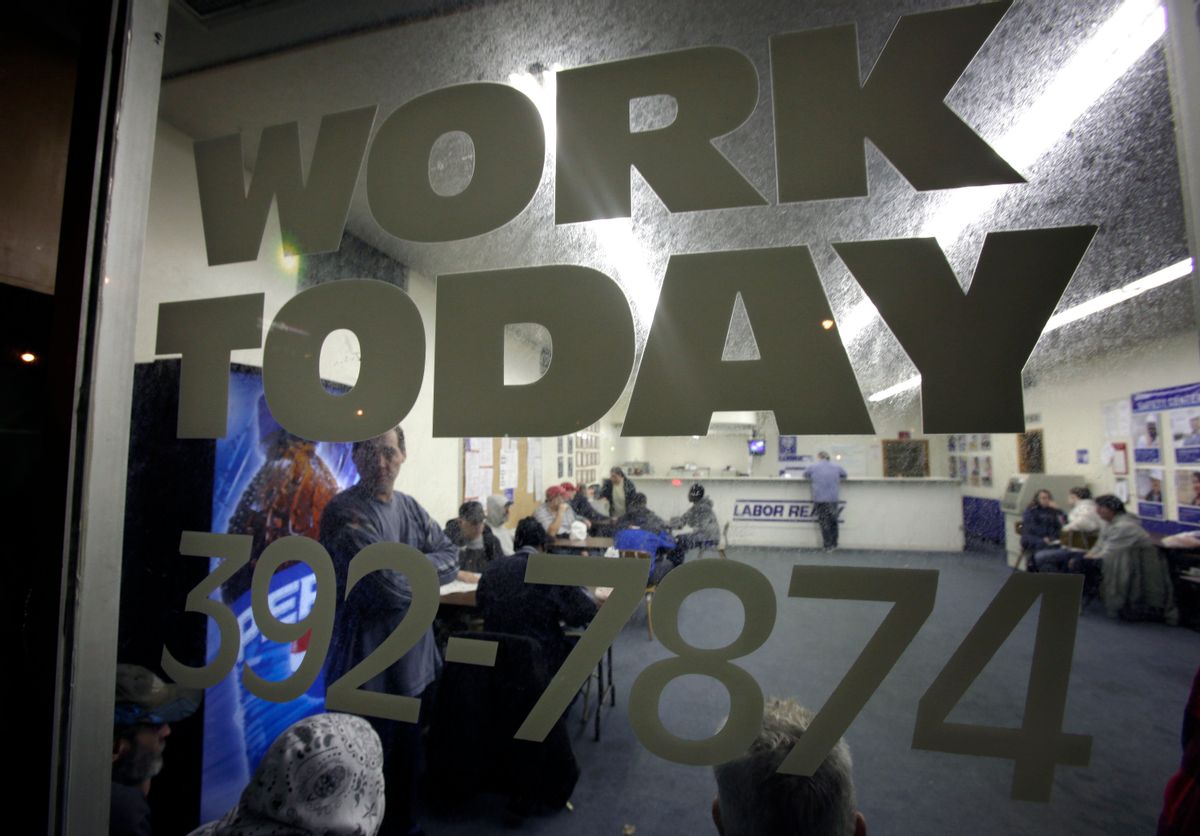 In yet more evidence that oppression is the business model and the entire economy is based on fuckery, a new study finds that being an academic superstar might actually hurt women’s job prospects. (Breaking news: Men, not so much.) The study also found that while men’s employability is determined by their level of capability and dedication, women were judged on their “likeability.”
In yet more evidence that oppression is the business model and the entire economy is based on fuckery, a new study finds that being an academic superstar might actually hurt women’s job prospects. (Breaking news: Men, not so much.) The study also found that while men’s employability is determined by their level of capability and dedication, women were judged on their “likeability.”
The conclusions of the study from Ohio State University suggest that companies are responsive to women who do well, as long as they don’t do too well. Ohio State sociologist Natasha Quadlin created resumes for 2,106 recent college graduates. Using an online employment database, Quadlin sent “two applications — one from a man and one from a woman” — to entry-level job listings. An Ohio State article about the study notes that “both applications included similar cover letters, academic history and participation in gender-neutral extracurricular activities.”
“We like to think that we’ve progressed past gender inequality, but it’s still there,” Quadlin said in a statement. “The study suggests that women who didn’t spend a lot of time on academics but are ‘intelligent enough’ have an advantage over women who excel in school.”
For women in science, technology, engineering and math fields, good grades were particularly harmful to post-collegiate career success. Men with high GPAs in those fields were three times as likely to get a response than their female academic peers.
“There’s a particularly strong bias against female math majors — women who flourish in male-dominated fields — perhaps because they’re violating gender norms in terms of what they’re supposed to be good at,” Quadlin noted.
The findings, which are as surprising as that part in a movie when the ugly girl turns into a hot chick after she takes off her glasses and scrunchie, were further driven home by the second part of Quadlin’s study. The sociologist surveyed 216 hiring managers and found that they looked for “competence and commitment” in male applicants, while prioritizing “likeability” in women job-seekers.
“This helps women who are moderate achievers and are often described as sociable and outgoing, but hurts high-achieving women, who are met with more skepticism, the study found,” the OSU article points out.
Power and success are seen as masculine virtues, and women who possess one or both are penalized for essentially not staying in what’s perceived to be their lane. This is what New York University psychology professor Madeline Heilman labels “lack of fit” between gender-based behavior stereotypes that leads to “gender bias in judgments” when those behavioral expectations are defied. Sociologist Marianne Cooper, writing at the Harvard Business Review, explains further.
What is really going on, as peer-reviewed studies continually find, is that high-achieving women experience social backlash because their very success — and specifically the behaviors that created that success — violates our expectations about how women are supposed to behave. Women are expected to be nice, warm, friendly, and nurturing. Thus, if a woman acts assertively or competitively, if she pushes her team to perform, if she exhibits decisive and forceful leadership, she is deviating from the social script that dictates how she “should” behave. By violating beliefs about what women are like, successful women elicit pushback from others for being insufficiently feminine and too masculine. As descriptions like “Ice Queen,” and “Ballbuster” can attest, we are deeply uncomfortable with powerful women. In fact, we often don’t really like them.
Somewhere, Hillary Clinton is reading about Quadlin’s study and sarcastically muttering, “You don’t say.” So is Michelle Obama, maybe in a room with her Harvard and Princeton degrees hanging on the wall, only she also understands how those sexist descriptors mingle with racist ones — “uppity,” “angry black woman” — when success and power are mixed with black womanhood. In any case, the obvious answer for smart women is not to dumb it down, but to rev it up.
“These are the people who will be advocates for you throughout your career,” Quadlin offered as a reminder, “those who support you early on and appreciate your intelligence and hard work.”



Shares